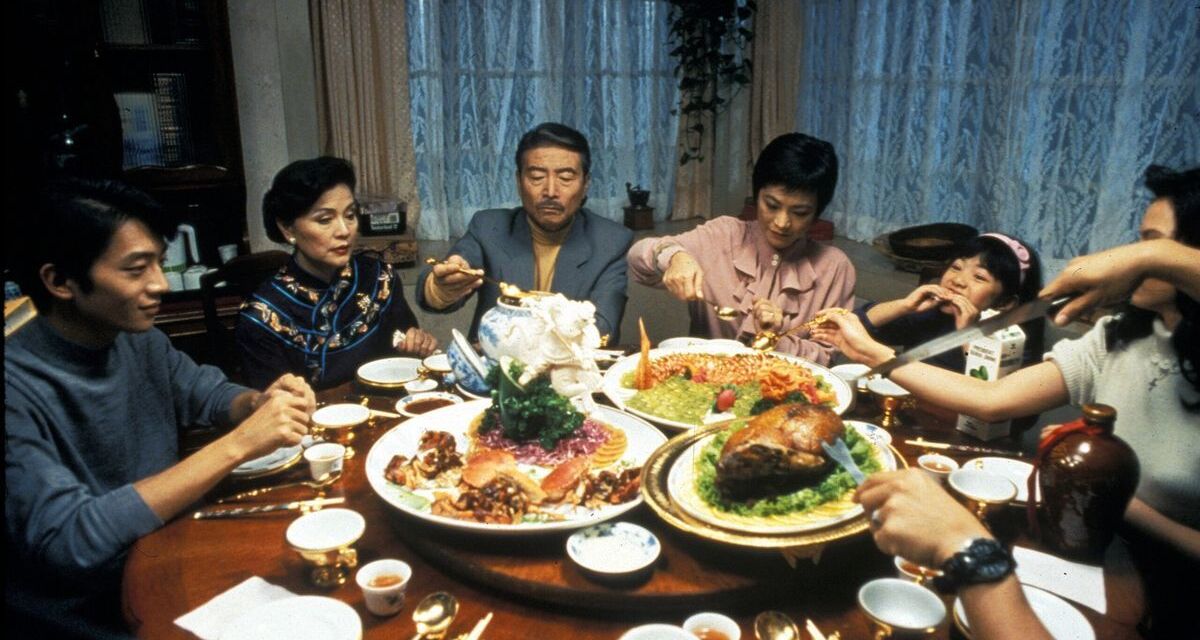
- Kijkwijzer 16
- Groftaalgebruik
- Seks




The film tells the story of a retired and widowed Chinese master chef Chu (Si Hung Lung) and his family living in modern day Taipei, Taiwan. At the start of the film, he lives with his three attractive daughters, all of whom are unattached. As the film progresses, each of the daughters encounters new men in their lives. When these new relationships blossom, the stereotypes are broken and the living situation within the family changes.. The film features several scenes displaying the techniques and artistry of gourmet Chinese cooking. Since the family members have difficulty expressing their love for each other, the intricate preparation of banquet quality dishes for their Sunday dinners is the surrogate for their familial feelings
KINO is proud to present (re)introduce you to nine masterpieces from the Taiwan New Wave. These classics have remained underseen in cinemas, so it’s high time we showcase them on our grandest screen. Featuring films from the first and second wave by Edward Yang, Hou Hsiao-hsien, Ang Lee, Tsai Ming-liang and more. The films of this revolutionary movement in cinema history were artistically innovative, but also in their realistic portrayal of the Taiwanese people. They illustrated societal and economic shifts, much like Italian Neorealism in the 1940s. By capturing their cultural identity, these filmmakers created their own voice and their own national cinema. Trailer: Baris Azman